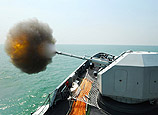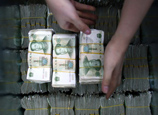
In history, any country that carried out large-scale development of newly discovered natural resources almost all experienced decline of manufacturing. Since the 1970s, from the United Kingdom, Norway, the Netherlands and other developed countries that gained huge revenue from North Sea oil and gas fields, to Russia, which enjoyed oil export revenues but suffered from light industry and heavy industry recession in these years, have all been caught in this dilemma.
This is, in fact, the result of economic laws: oil revenues will harm non-oil industries through the exchange rate mechanism; petroleum industry will beat the non-oil industry in the competition for labor, capital, land and other production elements.
The same mechanism will also act on the virtual economic sectors in financial services industry and entities economic sectors of the manufacturing in the United States. As long as the United States still maintains its parasitic monetary hegemony, the financial sector will always be better than the real sector to offer higher compensation and return on investment, always occupy a comparative advantage in attracting talent and capital inputs, and will always be able to get more preferential government policies and regulations in the environment where representative democracy combined with market economic system. In this mechanism, how can Americans expect to be able to count on their own "re-industrialization" for significant sustainable achievements?
Some made in China returning to the United States, and emerging market economies' capital flowing to some of the important driving forces of the U.S. manufacturing sector is just temporary phenomenon. In addition to warning investors of the security risk in the American investment environment, other undesired aftermath will become prominent as market participants re-examine the environment. This is not a good thing for the United States' re-industrialization objectives.
If the bomber were international Islamic terrorists, then for the expectation of U.S. cross-border retaliation, energy prices may take the hit. If the United States decides to take massive retaliation measures, its military expenditure, the military layout and expenditure decisions will undergo substantial adjustments, and the real economy sector is bound to be adjusted accordingly.

















 Snowfall hits Taiyuan, N China
Snowfall hits Taiyuan, N China


![]()
